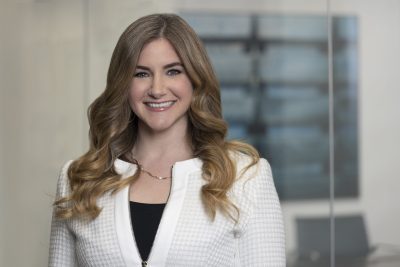Lead and Lithium: a view from an outsider who became an insider
Agenda for
21-23 June
2023

Some alternatives and technologies have succeeded in this journey, such as electric vehicles, renewable energy, and energy storage systems. The point in common among them is the predominant use of batteries. Available in many chemistry combination, these batteries have proven to be efficient, reliable, and scalable, making them the technology of choice for a wide range of applications and enabler of climate change solutions.
Thea Soule spent most of her career in the agricultural industry in Brazil. She joined Ecobat, the world’s largest battery recycler, in 2020 and has spent the past 3 years learning and integrating outside-industry experience into the world of battery recycling. With this unique perspective, one can see how special the lead-acid battery industry is, but also how it needs to change to maintain its position as the primary battery technology going forward. The two main advantages of lead-acid vs. lithium-ion were recyclability and cost. With the money being invested in this space, those advantages are quickly dissipating.
Even though competition in the battery market is fierce, lead-acid batteries are an impressive recycling success story. By establishing a well-organized supply chain where original equipment manufacturers (OEM), battery makers, and recyclers are connected, the lead industry helps ensure that batteries can go back to work instead of going into a landfill. Lead battery recycling offers over 99% of material recovery, the highest rate out of any other consumer product, and a new lead battery consists of over 80% recycled lead.
While the recyclability of lead is unquestionable, the industry needs to do more. Lithium-ion recycling yields are improving every day and costs are dropping with performance increasing. The lead industry has made impressive advancements in environmental protection by implementing sustainable practices and complying with strict regulations. Additionally, it has implemented rigorous occupational health and safety practices to protect workers from exposure to lead. Despite these facts, in many regions, lead is still under threat from government regulators and public opinion. Unfortunately, recent developments in the governmental landscape have not been favorable towards the lead industry. It is important to note that lead is a crucial element in the energy transition, and its significance in this transition must be acknowledged. By working together with the industry, governments and policymakers can create a regulatory framework that promotes sustainability, innovation, and growth.
This recycling success story of lead-acid batteries is a testament to the lead industry's commitment to sustainability and circularity. The industry must continue to innovate and adapt to stay ahead in a highly competitive market and meet the changing demands of the market and consumers. At the same time, governments and policymakers must recognize the importance of the lead industry and work to support its continued growth and development. The lead industry is a critical part of many countries' economies, providing employment and contributing to GDP.
In conclusion, lead sector faces challenges but there are many opportunities ahead. Thea will discuss the views of an outsider who became an insider to the industry.
Bio
Dorothea “Thea” Soule joined Ecobat in October 2020 as Chief Commercial Officer.
Thea has 15 years of experience in the commodities sector focused on investments and divestments, risk management, capital structure and allocations, process improvement, and supply chain system implementation.
Prior to Ecobat, she led commercial, procurement, and cane origination teams at Biosev, a Louis Dreyfus Company, from 2014 to 2020. Her role focused on driving sales and purchasing strategies, creating arbitrage opportunities, and implementing price risk management practices.
Prior to her work at Biosev, she was head of the commercial desk at Adecoagro, a sugar, ethanol, and electric energy producer in Brazil.
She has a B.S. in Neuroscience from Lafayette College and an MBA from Kellogg School of Management.

